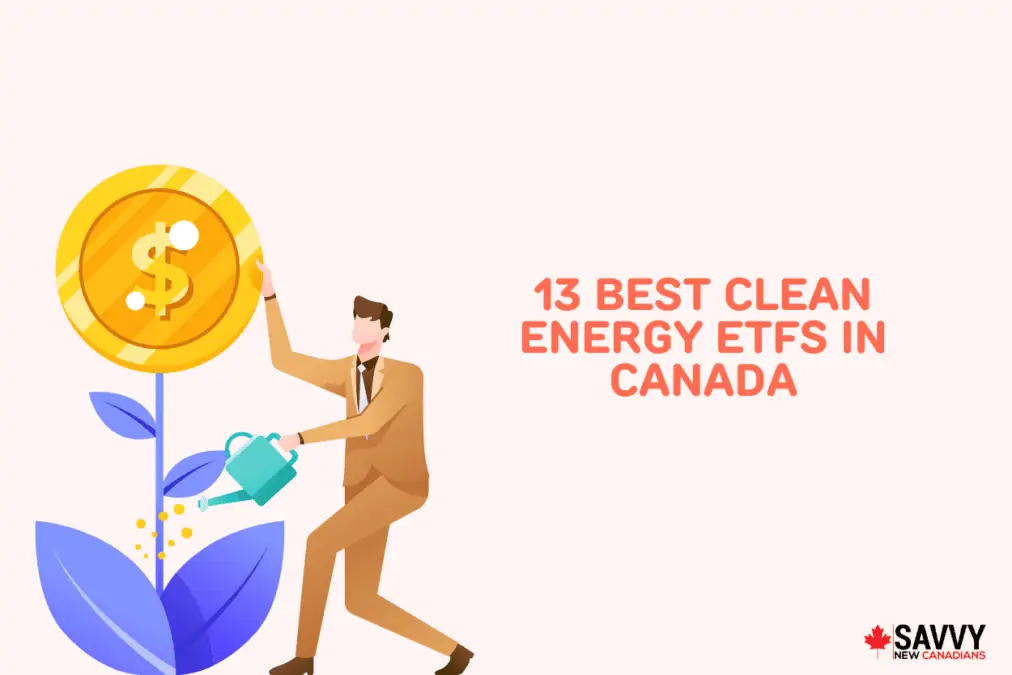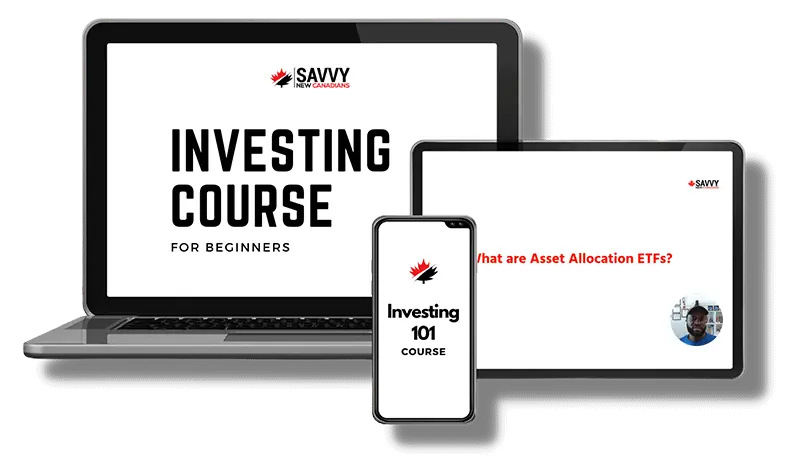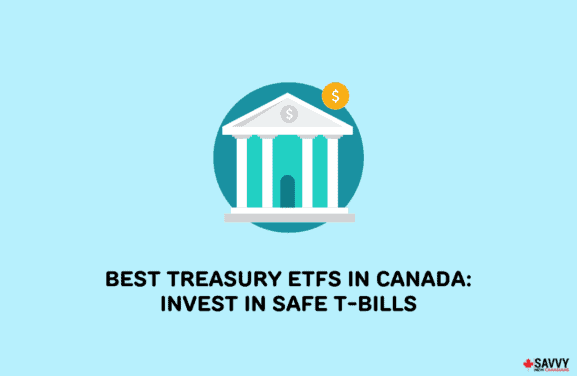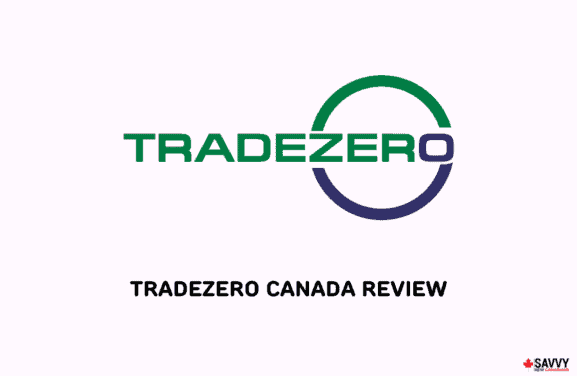There are few secular trends that are as impactful to the global economy right now as clean energy.
This interest has been part of a broader push from governments and companies worldwide to reach global carbon neutrality over the next few decades.
As investors, it’s always worth looking into these global trends and trying to get in at an early stage. But with so many clean energy stocks on the market, how do you pick which ones to invest in?
Enter clean energy ETFs, a balanced approach to tackling a rapidly growing sector.
These sector ETFs can provide a basket of stocks that track a certain type of clean energy or give you a diversified portfolio of several different energy sources.
Here are some of the best clean energy ETFs that contain the top renewable energy companies for Canadian investors.
Best Clean Energy ETFs in Canada 2024
1.Harvest Clean Energy ETF (HCLN)
This clean energy ETF is listed on the Toronto Stock Exchange and provides investors with a healthy mix of international clean energy companies.
It is an equally weighted ETF with 40 different holdings from across North America, Europe, Asia, and New Zealand.
| HCLN Holdings | Allocation |
| GCL Technology Holdings Limited | 2.7% |
| Plug Power Inc | 2.7% |
| Xinyi Solar Holdings Limited | 2.7% |
| Daqo New Energy Corp | 2.6% |
| First Solar, Inc. | 2.6% |
| Fluence Energy, Inc. | 2.6% |
| Mercury NZ Limited | 2.6% |
| Meridian Energy Limited | 2.6% |
| Nordex SE | 2.6% |
| VERBIO Vereinigte BioEnergie AG | 2.6% |
The fund is balanced on a semi-annual basis and is passively managed.
The management fee is 0.40%, and the MER sits at 0.68%, which are both reasonable but on the higher end of the ETF fees scale.
Key Facts as of September 2023 for HCLN.TO are:
- MER: 0.69%
- Number of stocks: 40
- Dividend yield: N/A
- Distribution frequency: annually
- AUM: $33.83 million
- 1-year performance: -16.06%
Not every clean energy ETF explicitly focuses on pure, clean energy companies. In this case, Blackrock’s popular iShares line of ETFs has chosen to go with Capped Utilities Index.
A deeper dive into the fund shows that XUT holds ten of the largest Canadian utilities companies.
| XUT Holdings | Allocation |
| Fortis Inc | 21.13% |
| Brookfield Infrastructure Partners | 16.42% |
| Emera Inc | 11.37% |
| Hydro One Ltd | 9.36% |
| Altagas Ltd | 6.26% |
| Algonquin Power Utilities Corp | 5.84% |
| Brookfield Renewable Partners | 5.78% |
| Northland Power, Inc | 5.23% |
| Capital Power Corp | 3.92% |
| Canadian Utilities Ltd Class A | 3.19% |
So, what’s so great about utilities? These companies often have a significant industry moat and are stable performers that replace growth with a solid dividend.
This fund sends monthly distributions with a management fee of 0.55% and an MER of 0.61%.
XUT has returned steady gains on an annual basis and a cumulative return of 109.85%, not including dividend reinvestment, since its inception in 2011.
Key Facts as of September 2023 for XUT.TO are:
- MER: 0.61%
- Number of stocks: 16
- Dividend yield: 3.74%
- Distribution frequency: Monthly
- AUM: $247 million
- 1-year performance: -17.12%
3. BMO Equal Weight Utilities Index ETF (ZUT)
For Canadian investors, BMO has its own utility index ETF that offers exposure to 16 of the largest Canadian utility companies.
Similar to XUT from iShares, this fund is equally weighted and holds companies like Fortis, Brookfield, and Altagas.
Distributions are paid monthly and have regularly been increased on an annual basis.
| ZUT Holdings | Allocation |
| Altagas Ltd | 7.91% |
| Transalta Corp | 7.84% |
| Transalta Renewables, Inc. | 7.69% |
| Algonquin Power & Utilities Corp | 6.89% |
| Hydro One Ltd | 6.89% |
| Capital Power Corp | 6.82% |
| Fortis, Inc. | 6.81% |
| Brookfield Infrastructure Partners LP | 6.71% |
| Emera, Inc | 6.60% |
| Atco Ltd | 6.28% |
The ZUT fund has a long history of steady returns since its inception back in 2010. It has a maximum annual management fee of 0.55% and an MER of 0.61%.
ZUT trades on the Toronto Stock Exchange and is valued in Canadian dollars.
Key Facts as of September 2023 for ZUT.TO are:
- MER: 0.61%
- Number of stocks: 16
- Dividend yield: 4.22%
- Distribution frequency: Monthly
- AUM: $406.24 million
- 1-year performance: -15.64%
If you are looking for an iShares ETF that is purely a clean energy investment, the ICLN fund is more of the conventional clean energy ETF.
ICLN holds 100 of the top clean energy companies in the world, including some recurring favourites like First Solar, which is the largest weighted holding at 8.82%, and Consolidated Edison, which composes 6.57% of the fund.
An interesting difference with ICLN is that iShares has included heavy weighting for semiconductor stocks, which most other clean energy funds do not have.
| ICLN Holdings | Allocation |
| First Solar Inc | 8.82% |
| Consolidated Edison Inc | 6.57% |
| Enphase Energy Inc | 6.50% |
| Vestas Wind Systems | 4.99% |
| Solaredge Technologies Inc | 4.94% |
| Iberdrola SA | 4.32% |
| China Yangtze Power LTD A | 3.18% |
| Edp Energias De Portugal Sa | 3.05% |
| Orsted | 2.99% |
| Chubu Electric Power Inc | 2.68% |
Distributions are paid out on a semi-annual basis in January and June, so if you are seeking a more consistent cash flow, you might want to check out a fund that pays distributions on a quarterly schedule.
Key Facts for ICLN are:
- MER: 0.41%
- Number of stocks: 100
- Dividend yield: 1.03%
- Distribution frequency: Semi-annual
- AUM: $3.48 billion
- 1-year performance: -2.49%
5. Invesco Solar ETF (TAN)
Invesco is another popular brand of ETFs, and the TAN is a fund that focuses on solar energy companies.
TAN holds 50 different solar companies from around the world, with a 52.64% allocation to US stocks, a 20.07% allocation to Chinese stocks, and the rest spread across other markets around the world.
This clean energy ETF has a management fee of 0.50% and a total expense ratio of 0.69%.
| TAN Holdings | Allocation |
| First Solar | 11.71% |
| Enphase Energy | 8.90% |
| SolarEdge Technologies | 6.92% |
| Array Technologies Inc | 5.40% |
| Xinyi Solar Holdings Ltd | 5.20% |
| GCL Technology Holdings Ltd | 5.18% |
| Shoals Technologies Group Inc | 4.94% |
| Sunrun Inc | 4.92% |
| Hannon Armstrong Sustainable Infrastructure Capital Inc | 3.67% |
| Daqo New Energy Corp ADR | 3.04% |
Positioned as a solar ETF, TAN is perfect for people who believe solar energy is the most viable renewable energy source for the future.
Note it does not include popular companies like Tesla, which does operate in the solar industry through their Powerwall product offering, although it is obviously not its primary focus.
This fund trades on the New York Stock Exchange and is valued in US dollars.
Key Facts as of September 2023 for TAN are:
- MER: 0.69%
- Number of stocks: 50
- Dividend yield: 0.27%
- Distribution frequency: Annual
- AUM: $2.00 billion
- 1-year performance: -19.54%

6. First Trust Global Wind Energy ETF (FAN)
When discussing clean energy solutions, we often overlook wind energy as a viable resource.
More and more countries are establishing wind farms in coastal oceans to take advantage of nautical winds.
These turbines create massive amounts of free energy used to power industry and other civil infrastructure.
FAN is an ETF from First Trust that holds 55 of the world’s top wind companies, including Vestas, Siemens Gamesa, and Boralex.
| FAN Holdings | Allocation |
| EDP Renovaveis SA | 7.78% |
| Vestas Wind Systems A/S | 7.38% |
| Northland Power, Inc | 6.75% |
| Orsted A/S | 6.50% |
| China Longyuan Power Group Corporation Ltd. | 3.84% |
| Owens Corning | 3.30% |
| Boralex Inc. | 3.11% |
| General Electric Company | 2.97% |
| Hitachi Ltd. | 2.96% |
| Enel SpA | 2.59% |
The fund pays distributions every quarter with a 1.34% yield.
First Trust implements an expense ratio of 0.60% and traders on the NYSEARCA index, which means it is valued in US dollars.
Key Facts for FAN as of September 2023 are:
- MER: 0.60%
- Number of stocks: 55
- Dividend yield: 1.34%
- Distribution frequency: Quarterly
- AUM: $222 million
- 1-year performance: -5.49%
7. BMO Clean Energy ETF (ZCLN)
This clean energy ETF managed by the Bank of Montreal is meant to track the S&P Global Clean Energy Index.
The BMO Clean Energy ETF holds 100 different assets from developed and emerging markets.
The highest weighted stock in the fund is the American energy company First Solar, Inc. with an 8.82% position.
| ZCLN Holdings | Allocation |
| First Solar Inc | 8.82% |
| Consolidated Edison, Inc | 6.56% |
| Enphase Energy Inc | 6.49% |
| Vestas Wind Systems A/S | 4.97% |
| Solaredge Technologies Inc | 4.94% |
| Iberdrola SA | 4.31% |
| China Yangtze Power Co Ltd | 3.18% |
| EDP – Energias De Portugal SA | 3.04% |
| Orsted AS | 2.95% |
| Chubu Electric Power Co Inc | 2.68% |
The BMO Clean Energy ETF provides exposure to all different clean energy markets and even includes some oil and gas refinery companies.
This ETF trades on the Toronto Stock Exchange and is valued in Canadian dollars, making it a great option for those looking to invest in global clean energy ETFs in Canada.
Key Facts as of September 2023 for ZCLN.TO are:
- MER: 0.40%
- Number of stocks: 100
- Dividend yield: 1.12%
- Distribution frequency: Annual
- AUM: $74.2 million
- 1-year performance: -14.17%
8. First Trust NASDAQ Clean Edge Green Energy Index Fund (QCLN)
First Trust has provided a creative way for investors to get exposure to the clean energy industry.
This global clean energy ETF includes popular companies like Tesla, Rivian, and Enphase Energy. It also includes some semiconductor exposure as well which definitely creates an ETF with a heavy tech focus.
The fund holds 62 stocks, with 22.23% of the companies being renewable energy stocks and 19.45% being EVs and automakers.
| QCLN Holdings | Allocation |
| Tesla, Inc | 9.65% |
| ON Semiconductor Corporation | 9.55% |
| Albermarle Corporation | 8.31% |
| First Solar, Inc. | 7.04% |
| Rivian Automotive, Inc. | 6.36% |
| Enphase Energy, Inc. | 5.95% |
| Lucid Group, Inc | 3.29% |
| Universal Display Corporation | 2.96% |
| Allegro Microsystems. Inc. | 2.81% |
| Brookfield Renewable Partners LP | 2.64% |
QCLN trades on the Toronto Stock Exchange and is valued in Canadian dollars. It is fully eligible for all types of investment accounts.
As far as ETFs go, QCLN is considered on the riskier side of things, especially with its exposure to EV stocks that are known to be volatile.
Key Facts as of September 2023 for QCLN.TO are:
- MER: 0.58%
- Number of stocks: 62
- Dividend yield: 0.01%
- Distribution frequency: Quarterly
- AUM: $1.39 billion
- 1-year performance: -1.29%
9. ALPS Clean Energy ETF (ACES)
ALPS has created its own clean energy ETF that focuses on North American companies. The fund is split between 84.83% American stocks and 14.95% Canadian stocks.
The fund also has an electric vehicle component to it but mostly focuses on pure-play clean energy companies.
| ACES Holdings | Allocation |
| Rivian Automotive Inc | 8.54% |
| Tesla Inc | 6.07% |
| Darling Ingredients, Inc. | 5.13% |
| Albemarle Corp. | 5.10% |
| Plug Power, Inc. | 4.81% |
| First Solar, Inc. | 4.80% |
| Northland Power, Inc. | 4.47% |
| Brookfield Renewable Partners LP | 4.25% |
| NextEra Energy Partners LP | 4.15% |
| Lucid Group, Inc. | 3.90% |
ACES is a relatively new clean energy ETF with its inception date in 2018. It pays out its distributions on a quarterly basis and has a management fee of 0.55%.
While ACES offers multiple different types of clean energy companies, it has significant weight for both solar and wind companies, which make up nearly 40% of the portfolio. ACES trades on the NYSEARCA index and is valued in US dollars.
Key Facts as of September 2023 for ACES are:
- MER: 0.55%
- Number of stocks: 43
- Dividend yield: 1.21%
- Distribution frequency: Quarterly
- AUM: $432 million
- 1-year performance: -6.18%
10. Invesco WilderHill Clean Energy ETF (PBW)
PBW is another Invesco–branded clean energy ETF that is based on the WilderHill Clean Energy Index, which is an independent index of global companies in the clean energy industry.
This ETF invests about 90% of its funds into stocks that are a part of this index and is weighted overwhelmingly in favour of companies in the industrial sector.
PBW holds about 75 companies right now, including several EV makers like XPeng, Nio, and Rivian.
| PBW Holdings | Allocation |
| Joby Aviation | 2.06% |
| Enovix | 1.81% |
| FREYR Battery | 1.78% |
| XPeng ADR | 1.74% |
| SES AI | 1.70% |
| QuantumScape | 1.61% |
| Rivian Automotive A | 1.61% |
| Wallbox | 1.59% |
| FTC Solar | 1.59% |
| Archer Aviation A | 1.58% |
Invesco has a management fee of 0.50% and a total expense ratio of 0.62%, which are standard for comparable clean energy ETFs.
PBW trades on the NYSEARCA index and is valued in US dollars. One caveat is that even though PBW holds international companies, the WilderHill index only tracks those that trade publicly in the US.
This means that any international stocks are likely ADRs or American Depository Receipts.
Key Facts as of September 2023 for PBW are:
- MER: 0.62%
- Number of stocks: 75
- Dividend yield: N/A
- Distribution frequency: N/A
- AUM: $756 million
- 1-year performance: -8.54%
11. Global X CleanTech ETF (CTEC)
CTEC is the Global X CleanTech ETF that was introduced in October 2020. It seeks to track companies that benefit from the adoption of clean energy technologies around the world.
Here are the top holdings in CTEC as of September 2023:
| CTEC Holdings | Allocation |
| First Solar Inc | 6.82% |
| Samsung SDI CO Ltd | 6.32% |
| Vestas Wind Systems A/S | 6.19% |
| Xinyi Solar Holdings Ltd | 5.62% |
| Enphase Energy, Inc. | 4.61% |
| Johnson Matthey PLC | 4.33% |
| Hanwha Solutions Corp | 4.07% |
| Solaredge Technologies | 3.99% |
| Array Technologies, Inc. | 3.93% |
| Plug Power, Inc. | 3.79% |
This ETF holds 41 different companies, with 40% of the allocation to US companies. South Korea and China make up the second and third largest allocations in this fund.
Key Facts as of September 2023 for CTEC are:
- MER: 0.50%
- Number of stocks: 41
- Dividend yield: 0.43%
- Distribution frequency: Semi-Annually
- AUM: $79.46 million
- 1-year performance: +8.58%
12. Invesco Global Clean Energy ETF (PBD)
PBD is yet another Invesco Clean Energy ETF that trades on the NYSEARCA exchange. This ETF tracks 118 of the world’s best clean energy stocks from various markets, including a 28.97% allocation to American stocks.
Here are the top holdings of PBD as of September 2023:
| PBD Holdings | Allocation |
| Array Technologies, Inc. | 1.13% |
| XPeng Inc ADR | 1.13% |
| West Holdings Corp | 1.07% |
| Rivian Automotive, Inc. | 1.04% |
| TPI Composites, Inc. | 1.03% |
| Fisker, Inc. | 1.03% |
| Archer Aviation, Inc. | 1.02% |
| Universal Display Corp | 1.02% |
| Phihong Technology Co Ltd | 1.01% |
This ETF also has a 41% sector allocation to industrial stocks and a 22.09% allocation to utility stocks. It also has a higher MER than other ETFs on this list, so take that into account when comparing different funds.
Key Facts as of September 2023 for PBD are:
- MER: 0.75%
- Number of stocks: 118
- Dividend yield: 0.38%
- Distribution frequency: Quarterly
- AUM: $205 million
- 1-year performance: -9.14%
13. VanEck Low Carbon Energy ETF (SMOG)
The VanEck Low Carbon Energy ETF (SMOG) was created to track the MVIS Global Low Carbon Energy Index.
Giving investors exposure to a wide range of top renewable energy companies, SMOG consists of over 70 holdings that are globally diversified.
The fund began trading in 2007 and has an impressive track record of steady gains.
| SMOG Holdings | Allocation |
| Tesla, Inc. | 9.56% |
| NextEra Energy, Inc. | 7.49% |
| Enel SPA | 7.06% |
| Iberdrola SA | 7.00% |
| Li Auto, Inc. | 5.14% |
| Samsung SDI Co. Ltd | 5.12% |
| BYD Co. Ltd | 5.06% |
| Vestas Wind Systems A/S | 4.44% |
| First Solar, Inc. | 3.18% |
Key Facts as of September 2023 for SMOG are:
- MER: 0.61%
- Number of stocks: 76
- Dividend yield: 1.09%
- Distribution frequency: Quarterly
- AUM: $183.13 million
- 1-year performance: -4.09%
How To Buy Clean Energy ETFs in Canada in 2024
Buying clean energy ETFs in Canada is as simple as buying an asset from your brokerage.
Like buying any stock, investing in a clean energy ETF is as easy as searching for the ticker symbol and hitting the buy option at the market price.
Questrade
Questrade is the best discount broker in Canada. Like Wealthsimple, this trading platform also offers commission-free purchases on ETFs and fees as low as $4.95 when selling.
When you open a Questrade account here, you get $50 in free trade credit after funding your account with at least $1,000.
Questrade

Trade stocks, ETFs, options, etc.
Get $50 trade credit with $1,000 funding
Low and competitive trading fees
Top platform for advanced traders
Transfer fees waived
Qtrade
Qtrade is another popular Canadian trading platform.
Based out of Vancouver, this platform charges slightly higher commissions and fees that are more in line with what is seen at the big banks in Canada.
Qtrade

Up to $150 sign-up bonus
Trade stocks, ETFs, options, bonds, etc.
Excellent platform for newbies and seasoned investors
Competitive trading fees
Excellent customer service
Are Renewable Energy ETFs a Good Investment?
The clean energy sector is one of the top secular trends for the future.
In the same way that oil companies were great investments in the past, we will begin to see a global shift towards using clean energy as our native source of power.
This means that holding a basket of different stocks allows you to benefit from gaining exposure to the broader sector, rather than trying to choose one or two companies that will outperform the industry.
Downsides of Clean Energy ETFs and Stocks
The downside of clean energy ETFs is that the industry itself is still highly speculative.
Which energy sources will reign supreme in the long run? Many questions remain to be seen, so putting all of your eggs in the clean energy basket can be a risky play right now.
Some of these ETFs hold speculative electric vehicle companies which are not yet profitable and could potentially be out of business a decade from now.
As far as broad sector ETFs go, clean energy funds are definitely riskier than, say, an index fund that tracks the S&P 500.
Conclusion
Clean energy is gaining momentum worldwide and will undoubtedly be the primary catalyst for lowering emissions and saving the environment.
But right now, this industry is still speculative, and even investing in clean energy ETFs can be a risky proposition.
If you can stomach a bit of risk and have a long-term investing horizon, then buying shares of clean energy ETFs can be a great play for the future.
Over the short term, there might be some more volatility, but having conviction in long-term plays is the key to successful investing!
Stock Advisor Canada

Unlimited access to expert stock recommendations
Almost doubled the S&P/TSX Index over last 9 years
New stock picks every month
50,000+ members
$1.90 weekly (66% discount)
Clean Energy ETFs in Canada FAQs
This is a great question, and there are many more ETFs we didn’t even cover here that you might prefer. As you can see, it can be hard to determine which is the best clean energy ETF as there is often a lot of overlap between the holdings within these ETFs.
With these top renewable energy companies appearing over and over again on these lists, it often comes down to individual preferences when deciding what to invest in.
Vanguard is one of the most popular ETF providers in the market. It does not have a pure-play clean energy fund, though. Recently Vanguard has shifted its vision for its VDE Energy ETF to include more clean energy companies, but it has yet to release a clean energy-specific ETF.
Canada has a wide range of renewable energy stocks, but the best investment over the long term will likely be Brookfield Renewable Partners (TSX:BEP.UN). Brookfield is a global asset management firm and owns renewable energy projects around the world.
The largest renewable energy company in Canada is Enbridge (TSX:ENB.TO). Enbridge has a market capitalization of nearly $106 billion USD and is clearly the largest pure energy company on the market.
Actually, no. Renewable energy ETFs generally aren’t any more expensive than other ETFs. Generally, you can look at the expense ratio of an ETF to see how much the company will charge investors for managing the fund. Clean energy ETFs are mostly in line with the industry standard, so relatively speaking, renewable energy ETFs aren’t more expensive.
Related:







